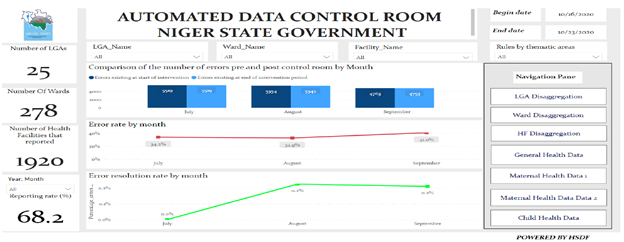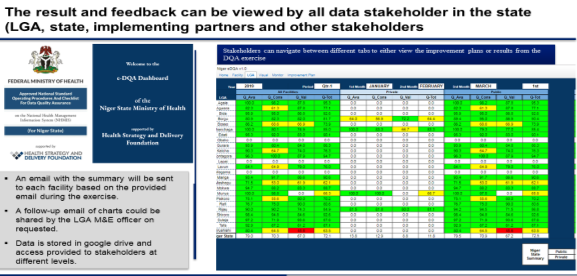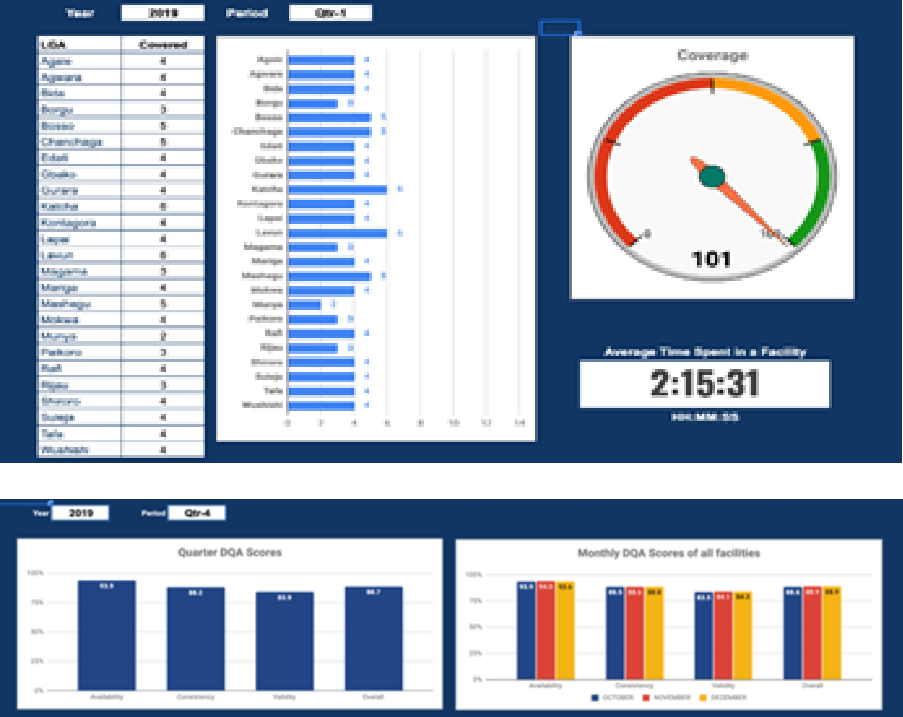Revolutionizing Health Systems with Data Analytics and Performance Management
Current Situation
The quality of decisions, policies and implementations made in Nigeria is hampered by a lack of credible evidence at the policy and programmatic levels. This is largely driven by lack of credible routine information in actionable form and challenges with the demand for and use of such information, where available.
The theory of change for performance management assumes that health system leaders, managers and frontline health workers perform optimally when they are held accountable for agreed targets and when they are given the impetus and inputs to act.
Our Approach
HSDF supports the institutionalization of performance management to improve health outcomes, foster the culture of data use, develop systems to conduct analytics, generate insights, and strengthen review platforms where data may be used to guide decision-making and planning processes within the sector.
Specifically we work to:

Improve the quantity, quality, and use of health data with innovative approaches, tools, and resources

Institutionalize performance management for results and strengthen the use of data for accountability through targeted human capacity development and Routine Health Information System (RHIS) strengthening

Improve governance and coordination to strengthen program delivery by effectively engaging and aligning stakeholders in support of health information systems by embracing innovative approaches and learning

Disseminate information and products that demonstrate our support to stakeholders to build and adopt data and analytics systems to drive effective performance management
Results
One innovative approach that we helped implement in states is the establishment and use of a ‘Control Room’. This government-led and partner-supported intervention aimed at improving the quality of health data on the District Health Information System 2 (DHIS2) platform by ensuring that errors and data inconsistencies present in the data uploaded are flagged promptly and corrected before the DHIS2 reporting period closes. The control room is currently operational in Lagos, Kano, Kaduna, and Niger
HSDF developed and piloted an electronic DQA (e-DQA) approach which offers greater flexibility, reduces errors, takes advantage of cutting-edge technology, requires less HR time and costs, and creates a platform for real-time access to data by all stakeholders within required clearance levels. DQAs are now completed in real-time by the state with prompt feedback to state and local government area stakeholders. There has since been proper documentation of DQA findings and an improved DQA Score from 81 percent to 88.7 percent.



